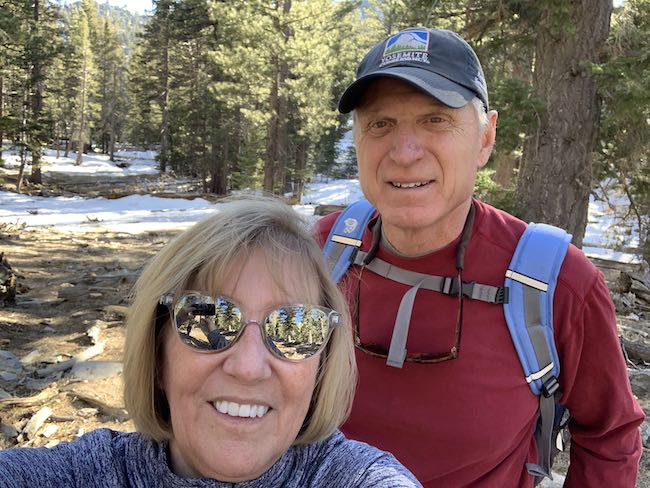When Alan Tarbutton was called to the counter at the Department of Licensing office to get his enhanced ID, his wife Janet went with him. She explained that her husband, who had been diagnosed with Younger Onset Alzheimer’s four years ago, would need her help.
The clerk, though, wouldn’t allow it.
“They wouldn’t let me stand next to him,” she said.
So she sat back down and, as she predicted, when Alan Tarbutton couldn’t remember his address, the clerk called her back up.
Situations like this aren’t new to the Tarbuttons, which is why they’ve been working on a committee to make Spokane a Dementia Friendly Community.
After more than two years working on this project, the city was officially named Washington State’s only Dementia Friendly Community earlier this year.
This means through the Dementia Friendly America network, Spokane will be better equipped to support people living with dementia, as well as their families and caregivers.
“Our goal has always been to try and change the mindset of what is a dementia patient or person,” Janet Tarbutton said. “The mindset is that they’re unable to do anything, and that’s not true. They may have to do things differently.”
The first step is surveying the community about Spokane area’s strengths, gaps, and priorities regarding Alzheimer’s and other dementias. The Spokane Area Dementia Friendly Community team is looking to gather anonymous responses by Oct. 9.
“The preliminary survey work we’re doing now is going to tell us, we hope, what the community thinks and believes about our community as it is and as it could be,” said Mark Habermann, planning and resource director for Aging and Longterm Care of Eastern Washington.
Based on the survey responses, the team will begin writing a plan on how to make the city dementia friendly.
The team is looking at seven areas:
- Community Services and Supports
- Communities of Faith
- Community Members Living with Dementia
- Family Care Partners
- Hospitals/Acute Care Settings
- Local Government/Agencies
- Residential Care
- Other
Retired physician Dr. Bruce Dentler is a champion for the faith sector.
He said he watched his mother die from dementia in the 2010s and slowly withdraw from church life. The social stimulation, coupled with the difficulty of remembering names, became too much for her.
“I always thought it was very sad,” said Dentler, noting that his father was a pastor. “If church members had better skills knowing how to respond to persons with memory loss and knew how to keep them included in the life of the congregation, that would enrich everybody’s life. People would learn more about how to continue to see that person with personhood.”
He said it would also help families dealing with dementia feel supported by the church.
Joel Loiacono, regional director for Eastern Washington and Eastern Washington, Washington State Chapter of the Alzheimer’s Association said oftentimes clergy and their staff are the first ones to detect when someone might have memory loss. However, many times they don’t know how to help. His hope, he said, is that the Dementia Friendly Community initiative can fix that.
The Spokane Parks and Recreation Department has already been leading the way in finding ways to offer programming to dementia patients.

Alan Tarbutton, who has always been an avid outdoorsman, has been able to continue hiking, snowshoeing and kayaking thanks to city staff willing to work with him.
“Alan, or any other person with a type of dementia, is still a person and still wants to be treated with dignity,” Loiacono said.
Currently in Washington there are more than 120,000 people over the age of 65 who have Alzheimer’s or another type of dementia, and that number is expected to rise in coming years, according to the Alzheimer’s Association.
The Action Team is hopeful they can make a difference in Spokane, and be an example to the rest of the state. Early planning partners include Aging & Long Term Care of Eastern Washington, the Washington State Chapter of the Alzheimer’s Association, and Providence Health Care (including Providence Adult Day Health, Providence Holy Family Hospital, and Providence Sacred Heart Medical Center).










